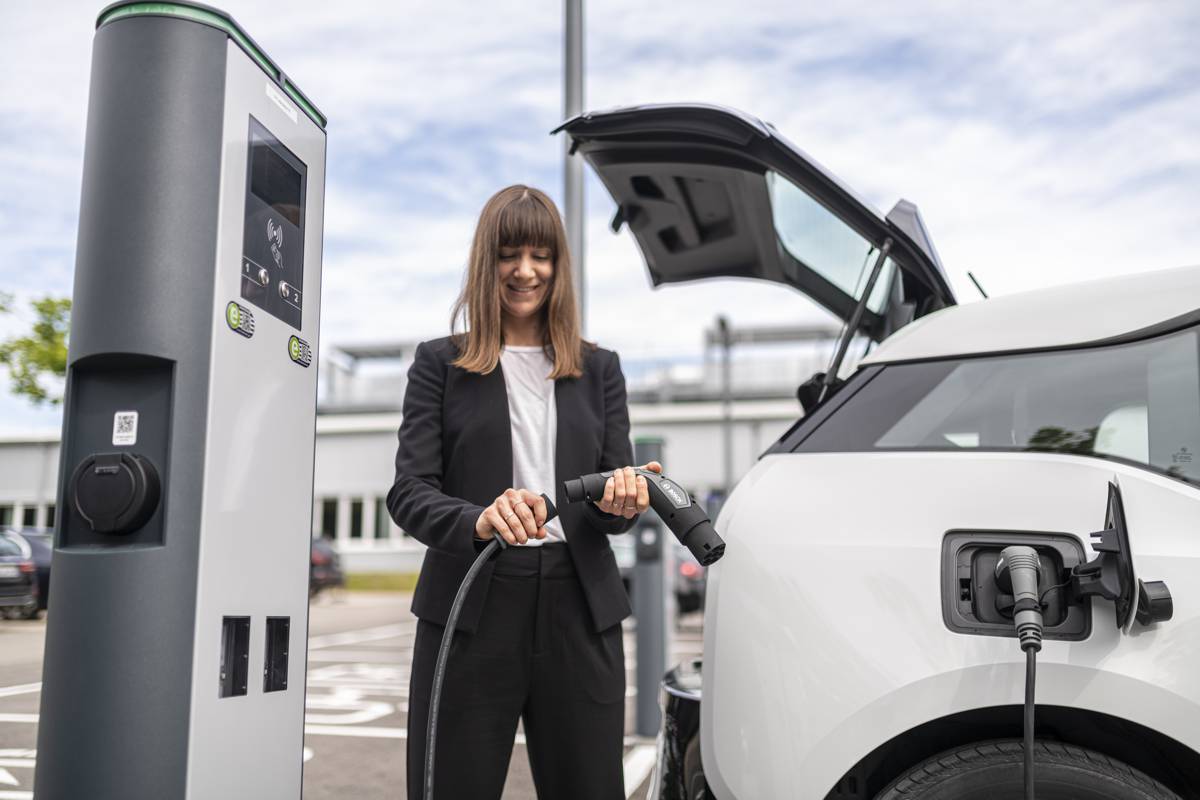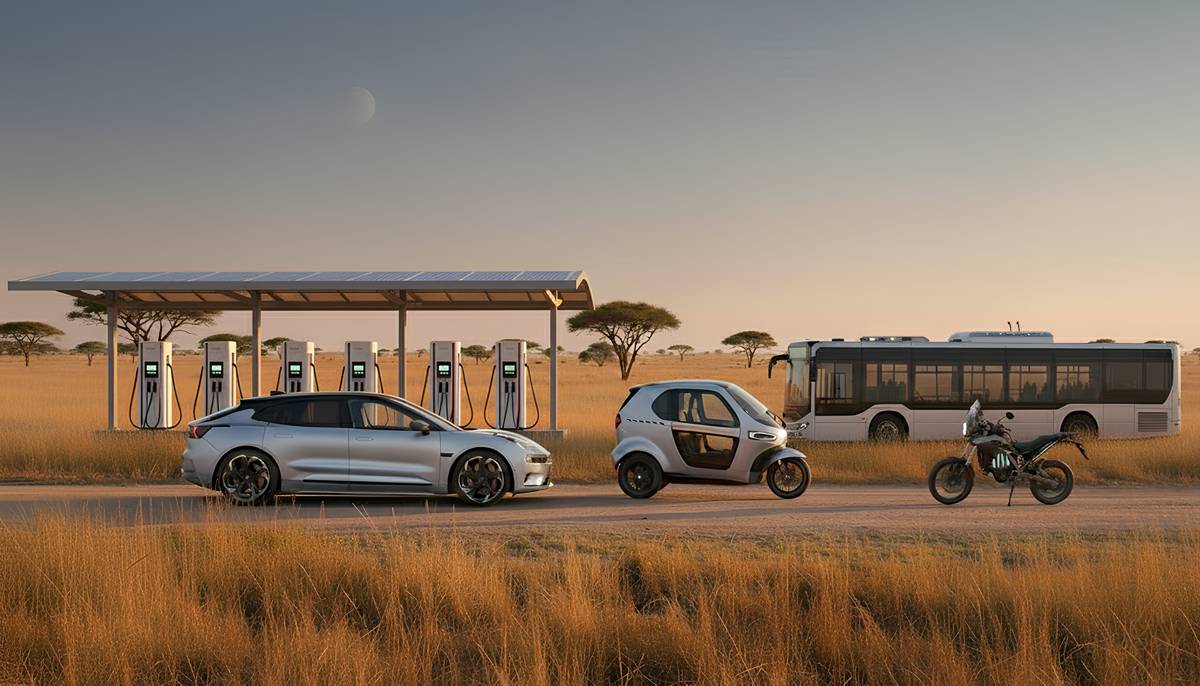Bosch innovates away with the Charging Brick
Bosch’s new flexible smart charging cable with integrated control and safety technology also does without the usual “charging brick” – as the bulky in-cable control box is colloquially known – when charging at a 230-volt power socket.
This means the flexible smart charging cable, which will celebrate its world premiere at IAA Mobility 2021, weighs less than three kilograms. On average, this is a good 40 percent less than conventional charging cables with a control box. The high-tech cable saves not only weight but also space in the trunk. Because it comes with adapters for Type 2 and household plugs, drivers who want to be free to choose whether to recharge from a power socket at home or from a charging station on the road no longer need a second cable. In effect, recharging electric cars has never been so simple.
“With this universal charging cable, Bosch is making electromobility even more customer-friendly,” says Dr. Uwe Gackstatter, president of the Bosch Powertrain Solutions division. “We want to make the new cable standard equipment for electric vehicles.” Bosch expects to start selling the cable to vehicle manufacturers and drivers in mid-2022.
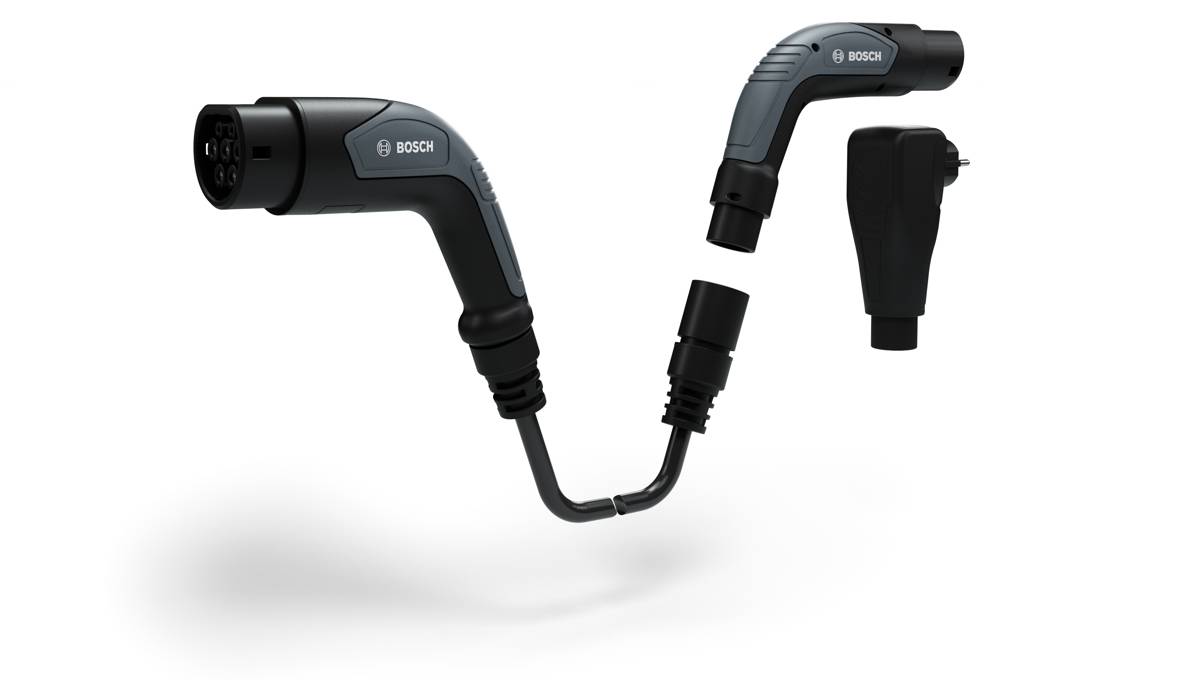
One cable fits all: charging at home and on the road at up to 22 kW
The three-phase cable enables so-called mode 2 and mode 3 AC charging at up to 22 kilowatts. With the flexible smart charging cable, there is no need for a wallbox when recharging at home. This is what customers want. In Europe, 84 percent of electric car drivers recharge their vehicle at home in the evening or overnight.
The technology integrated into each of the plugs makes the recharging process safe and reliable. The type 2 connector at the vehicle end of the cable contains the components for controlling and monitoring the charging power. At the other end, the household plug with adapter houses the temperature control and a residual current device.
This ensures that no overloading or overheating occurs even during regular recharging at a household power socket with up to 2.3 kilowatts of charging power. If necessary, the safety technology deactivates the cable before the situation becomes critical.
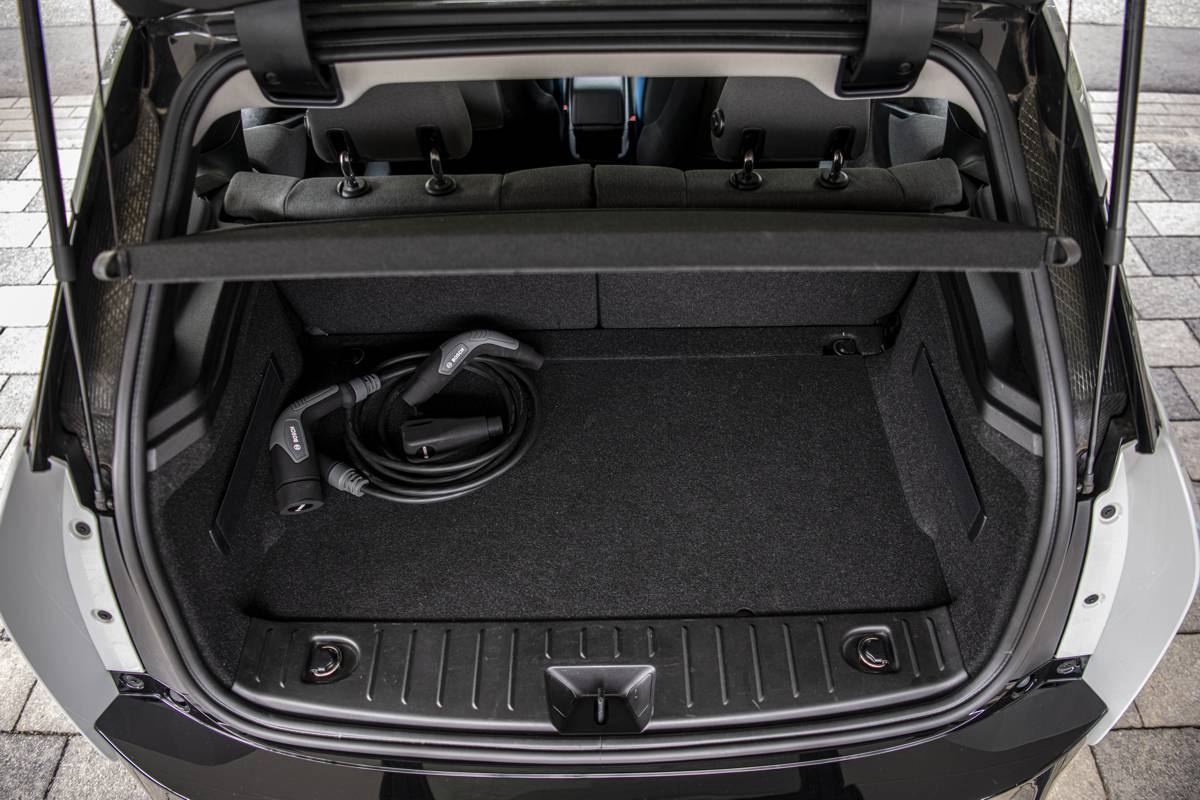
Miniaturization know-how: Bosch shrinks technology by a factor of three
To be able to integrate the control and safety technology into the compact cable connectors, Bosch developers have significantly reduced the size of the electronics components compared to previous applications in control boxes.
Here, they benefited from the miniaturization expertise that it is constantly developing within the company. “The flexible smart charging cable is a great example of how Bosch is using innovative high-tech to make everyday life easier while helping electromobility achieve broader acceptance,” Gackstatter says.
Moreover, the new cable was developed in a very short time: the development team succeeded in bringing the new charging cable to market maturity within just 18 months.
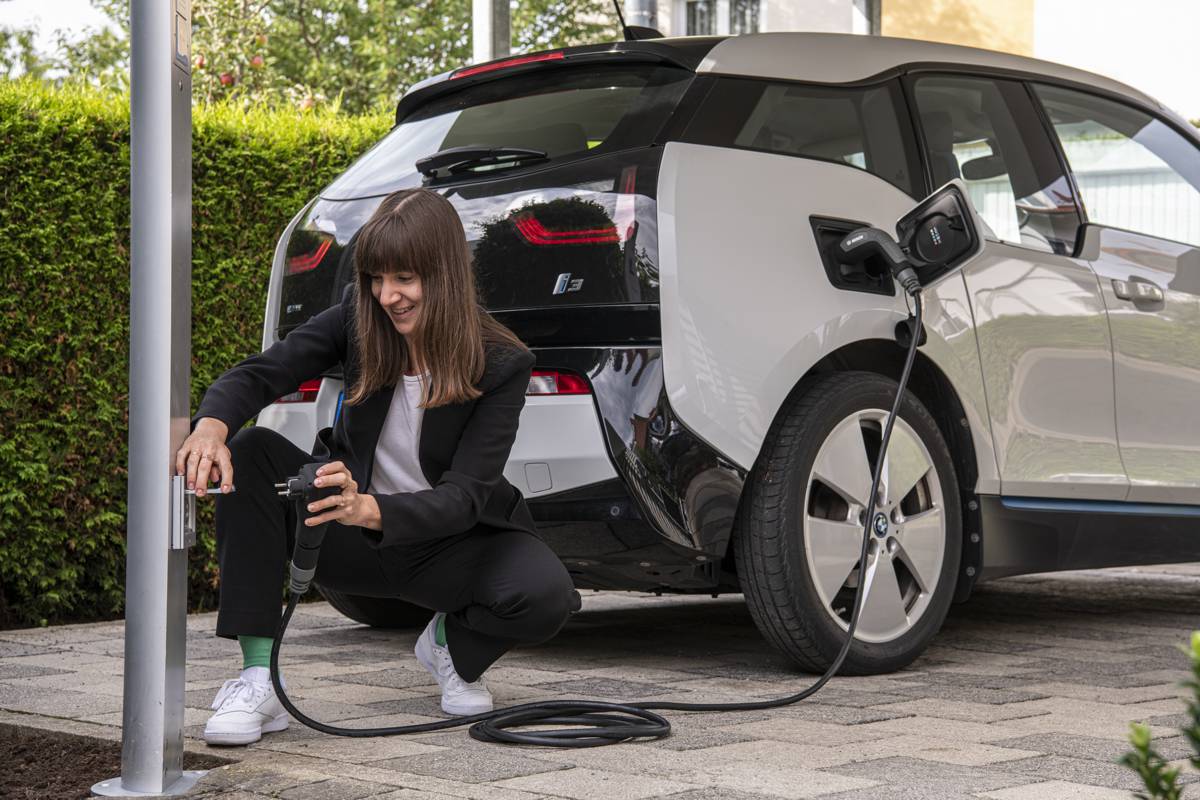
Innovation leadership: Bosch expands portfolio in electromobility
The flexible smart charging cable is a new addition to the Bosch electromobility portfolio. The company takes an integrated approach in this area. As an innovation leader, Bosch has a broader electrical powertrain portfolio – from e-bikes to passenger cars to construction machinery – than any other company.
This portfolio features solutions for both battery-electric and fuel-cell powertrains. It also includes recharging services and the battery-in-the-cloud management service to improve battery performance and service life.
In addition, Bosch has entered the business of providing factory equipment for battery production.
